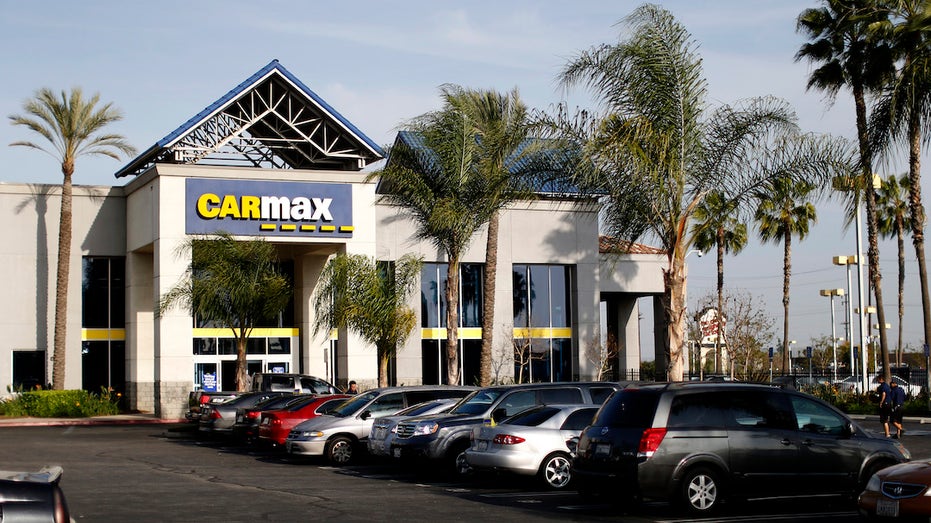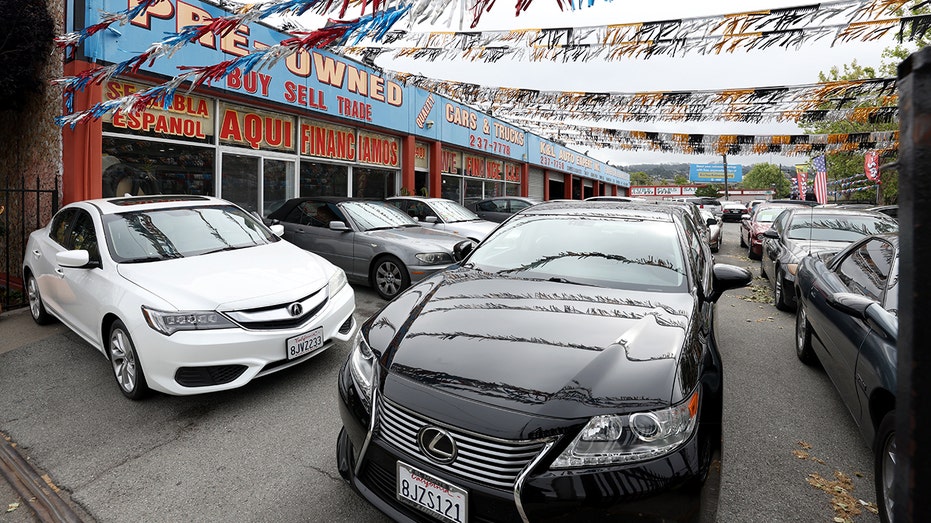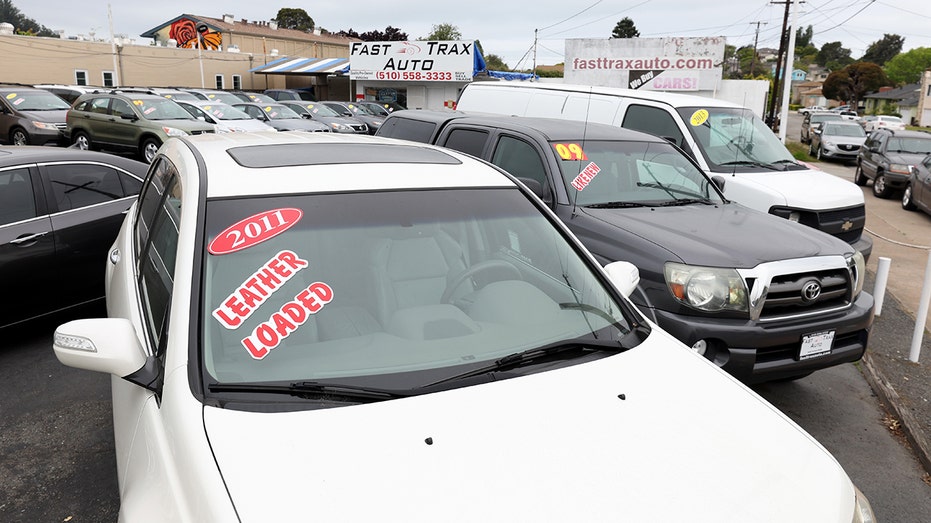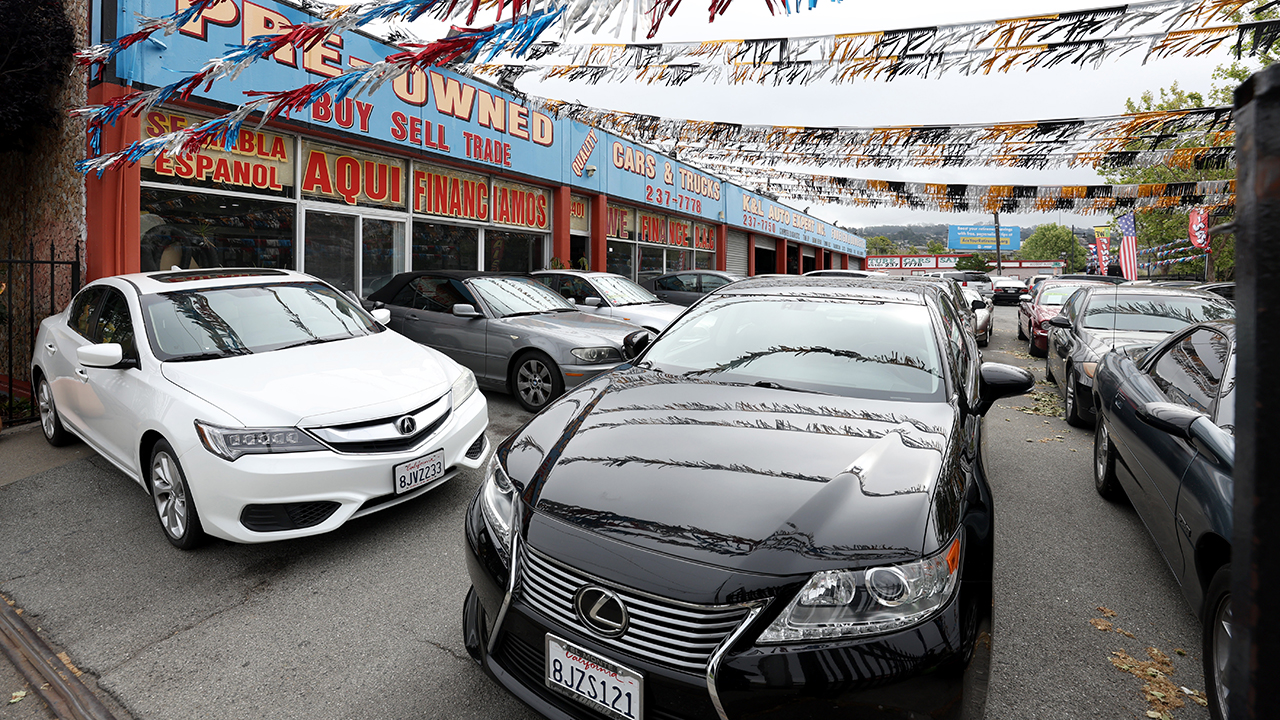Used car price drop hurting sellers, but is it good for buyers yet?
Wholesale prices are down, but retail hasn't followed yet
CarMax CEO Bill Nash shed some light last week on where used car values are heading as the company missed earnings targets despite an average sale price increase of $100.
Fewer sales were being made, however, as consumers deal with inflation and persistently high retail prices, but Nash said wholesale prices "were affected by steep depreciation in the quarter," which could negatively affect its dealer auction business.
The latest report from auction giant Manheim also found that wholesale prices were down 2.3% in the first half of September, following a 4% drop in August.
Chris Frey, senior manager of industry insights at Manheim's parent company, Cox Automotive, told FOX Business the lower costs are not finding their way to consumers just yet.
GM OUTSELLS TOYOTA IN US AS INDUSTRY WORRIES ABOUT INFLATION

CarMax said used car wholesale values are dropping. (REUTERS/Mario Anzuoni / Reuters Photos)
"Used vehicle retail demand has been relatively steady through the second half of 2022 and is unlikely to change notably as new inventory is still challenged," Frey said.
"While higher [interest] rates are weighing on some shoppers, overall, we believe used vehicle demand will remain steady through year-end."
Frey noted used car inventories appear to be healthy and that Cox sees "an opportunity for price softening at retail," but that it hasn't happened yet as supply and demand are in balance right now.

Retail used car prices are expected to remain steady through the end of the year, according to Cox Automotive. (Justin Sullivan/Getty Images / Getty Images)
"Prices are elevated, but we are not seeing any major moves up or down. Average list is still around $28,000. While wholesale prices have declined in recent months, retail list prices have been holding steady," Frey said.
"Historical trends may come back into play, and pricing power could weaken, but right now the outlook is stable."
TESLA SELLS RECORD NUMBER OF CARS BUT FALLS SHORT OF EXPECTATIONS
Some recent used car buyers could be in for a rude awakening when prices finally do start to drop, due to the inflated prices they paid combined with further age and mileage-related depreciation that may put them deep underwater on their loans.

Used cars for sale are displayed on the sales lot at Fast Trax Auto May 6, 2022 in El Cerrito, Calif. (Justin Sullivan/Getty Images / Getty Images)
"If you want to sell, trade in or refinance the car, you’d have to pay the difference between what you owe and the car’s value," NerdWallet auto loans specialist Shannon Bradley told FOX Business.
GET FOX BUSINESS ON THE GO BY CLICKING HERE
"Another option is to reduce any negative equity by paying extra on the loan’s principal, either with the monthly payment or in a lump sum. Underwater borrowers could also look into refinancing, but with rising rates that may not be beneficial. Finally, borrowers should talk to their lenders about any assistance they might be able to provide."




















